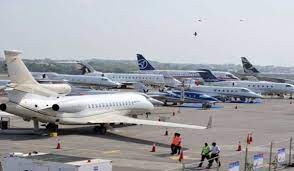The Societe Internationale de Telecommunications Aeronautique (SITA), has said 33.4 million passenger baggage were mishandled in 2024, with an estimated $5 billion spent to resolve the situation.
SITA, in its 2025 Baggage IT Insights derived from 280 airlines and the International Air Transport Association, IATA, passenger traffic worldwide, also said of the 33.4 million mishandled bags, over 66 per cent (22 million) were resolved and closed in SITA WorldTracer within 48 hours, noting that out of the 22 million, 25 per cent were resolved within 12 hours, 38 per cent within 24 hours, and another 38 per cent within 48 hours.
The report, however, said that the 33.4 million mishandled baggage was a drop when compared to 2023, adding that the mishandling rate dropped to 6.3 bags per 1,000 passengers in 2024, down from 6.9 the previous year, a 67 per cent improvement since 2007.
SITA recorded that delayed bags were the most common issue, accounting for 74 per cent of mishandled baggage, down from 80 per cent in the previous year.
The data also showed that lost or stolen bags made up eight per cent, while damaged or pilfered bags increased to 18 per cent, up from 15 per cent in 2023.
Transfer mishandling, in the report, was the biggest contributor at 41 per cent, showing improvement from 46 per cent the previous year. Tagging or ticketing errors, security issues, and similar factors rose slightly to 17 per cent (up three percentage points), while loading failures remained steady at 16 per cent. Operational issues such as customs delays, weather, or capacity constraints increased to 10 per cent, up from 8 per cent.
According to the report, the costs, from courier returns and customer service to claims handling and lost productivity, highlight the urgency of continued investment in real-time, automated and data-driven baggage systems.
Speaking on the development, the Chief Executive Officer of SITA, David Lavorel, said: “In air transport, transformation isn’t a phase, it’s the norm. The industry is constantly evolving, driven by technology, passenger expectations, and global change. We have seen a radical shift with automation and the widespread use of real-time tracking. Passengers now expect their baggage experience to be as easy and transparent as using a rideshare or delivery app.
“It’s no longer just about moving bags, it’s about delivering a smooth, connected journey. Airlines are ready to tap into technology that improves the passenger experience while keeping costs down and being simple to roll out. Together with our partners, we’re reimagining baggage handling to give passengers full visibility and control from departure to arrival, giving them peace of mind and making travel simpler and better.”
